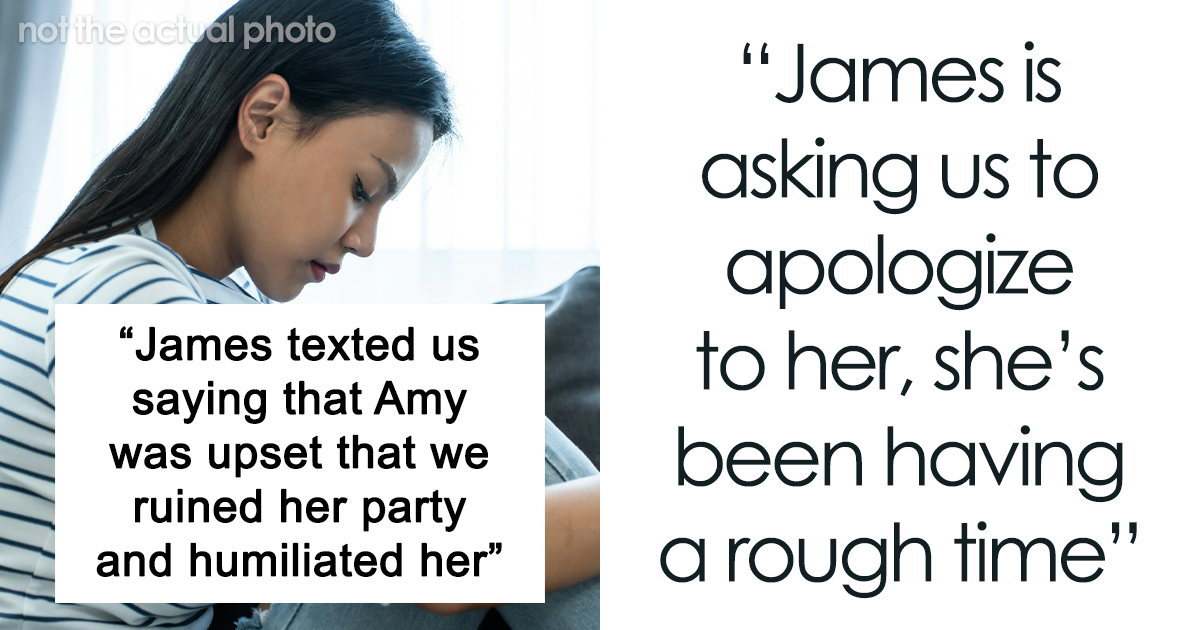Navigating the “No” Minefield: A Story of Boundaries and Entitlement
This blog post explores the challenging situation of dealing with someone who struggles to accept “no” as an answer, using a real-life example to illustrate the complexities involved. We’ll delve into the underlying reasons for this behavior, strategies for effective communication, and ultimately, the crucial decision of whether to maintain or distance oneself from such relationships.
The Incident: An Unreasonable Request
Our story centers around a woman who faced an uncomfortable situation with a friend, Amy. The crux of the issue involved Amy’s unreasonable demand. Amy, without a second thought, asked the woman to vacate her own home to host a party. This request was not only presumptuous but entirely inappropriate, placing undue pressure on the homeowner. The woman, understandably, declined Amy’s request. This simple “no,” however, ignited a disproportionate reaction.
The Backlash: Victimhood and Entitlement
Instead of accepting the refusal gracefully, Amy reacted with a surprising display of victimhood. She blamed the woman for ruining her evening, completely ignoring the inherent inappropriateness of her initial demand. This lack of responsibility and the refusal to apologize highlighted a concerning pattern of entitled behavior. The incident left the homeowner feeling frustrated and questioning how to best handle future interactions.
Understanding the Root of the Problem: Why Some Can’t Accept “No”
The inability to accept rejection often stems from deeper communication issues and unresolved personal struggles. It’s not simply about being difficult; it’s about a lack of developed coping mechanisms.
A Therapist’s Perspective: The Role of Communication and Emotional Maturity
Licensed therapist Richard Zwolinski, LMHC, sheds light on this behavior. He suggests that those who struggle with “no” may lack the emotional intelligence and communication skills to handle disappointment constructively. They might have never learned healthy ways to process rejection, leading to manipulative tactics or retaliatory behavior as coping mechanisms. These individuals may be unaware of their actions, driven by a need for control and fear of having their desires unmet.
Responding to the “No” Challenge: Strategies for Effective Communication
Zwolinski emphasizes the importance of responding with empathy and understanding, rather than immediate confrontation. Assessing the situation calmly, avoiding accusatory language, and attempting a kind yet firm approach is crucial. The Taylor Counseling Group reinforces this, highlighting the importance of respectful yet assertive communication.
Finding the Balance: Kindness and Firmness
The key is to find a balance between kindness and firmness. This balanced approach fosters respect and encourages the other person to reflect on their behavior. However, if these efforts prove fruitless, a reevaluation of the relationship may be necessary. In the case of our protagonist, the strained relationship with Amy called for a serious consideration of distancing until a sincere apology was offered. Maintaining civility, however, could be a viable interim approach.
The Aftermath and Lessons Learned: Finding Resolution
Following the incident, the woman received abundant advice, particularly online. She later updated her story, revealing a pivotal conversation with Amy and her partner. This conversation provided valuable insight, revealing that Amy’s grievances weren’t directed solely at the homeowner; deeper underlying issues were at play. This ultimately shifted the perspective of the original situation, illustrating that the circumstances involved are often far more complex than they may appear at first glance.
This experience serves as a valuable lesson, reminding us of the importance of setting healthy boundaries and navigating difficult interpersonal dynamics with both empathy and self-preservation in mind. It underscores the necessity of cultivating mature communication skills, not only for ourselves but also for creating positive and respectful relationships with others.
https://www.boredpanda.com/




